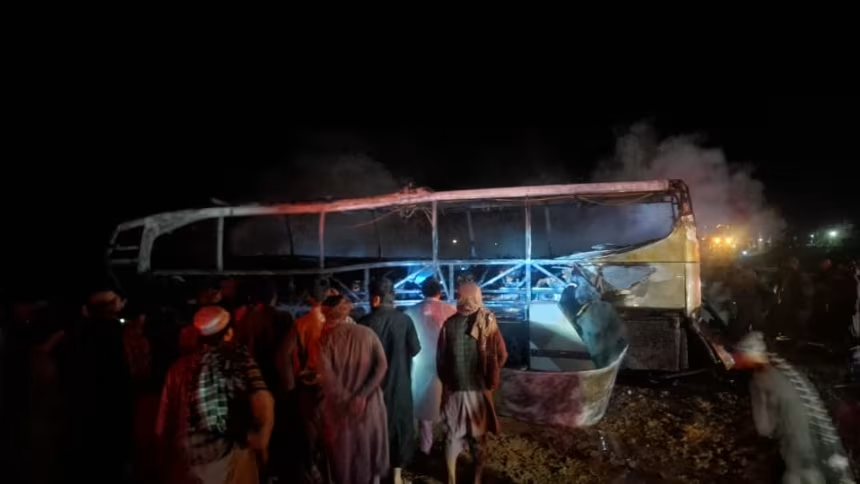A devastating road accident in western Afghanistan has claimed the lives of nearly 80 people, including many children, in what is now one of the region’s most horrifying traffic disasters. The victims were among thousands of Afghans recently deported from Iran and were travelling back to the capital, Kabul.
The crash took place late at night near Herat when the overloaded bus collided with a motorcycle and a fuel-laden truck. The impact triggered a massive fire that engulfed the bus almost instantly. First responders arrived hours later to find charred wreckage, many victims beyond recognition, and only two survivors among the wreck.
The human cost is staggering—at least 79 people perished, with nearly 20 young children among them. Families were torn apart, and the pain of grieving relatives is immeasurable. The incident lays bare the growing vulnerability of deportees forced onto dangerous routes with barely any safeguards or warning.
News of this tragedy arrived amid an ongoing humanitarian crisis. Since early 2025, more than a million Afghans have been expelled from Iran under controversial deportation campaigns, many accused without reason. These returnees are often left with little choice but to embark on perilous journeys through poorly maintained roads, lacking proper transportation or security.
Transportation experts and rights groups warn that this accident highlights a pattern: inadequate infrastructure, reckless driving, and lack of regulation all converge to turn ordinary travel into high-stakes survival. Afghanistan’s ring road, one of the country’s main thoroughfares, demands urgent attention—especially under the heightened pressures of mass returns.
Authorities have launched an investigation into the crash. Meanwhile, humanitarian agencies are demanding accountability and assistance for those affected. This tragedy is not just a headline—it is a call to action for safer government responses, compassion and immediate reform.


